This list of all the best high protein fish and seafood options will help you add some high quality protein to your day. Everything on this list has over 20 grams of protein with tons of different options, from fresh fish to shellfish and even canned fish!
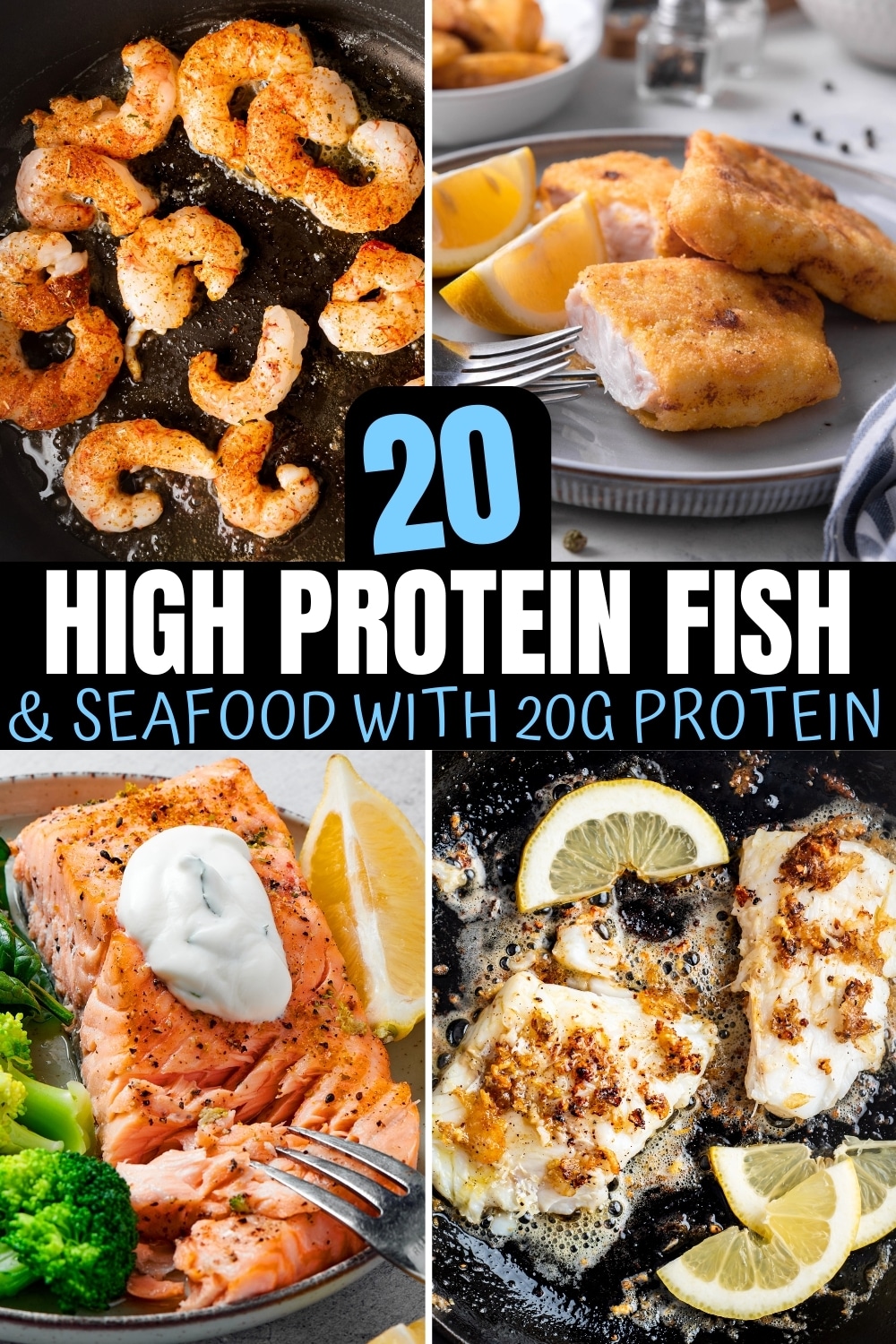
Table of Contents
Highest Protein Fish and Seafood Options
When it comes to getting your daily dose of high-quality protein, seafood is one of the best options to reach for. Fish, shellfish, and other types of seafood are complete protein sources with all of the essential amino acids you need. Not to mention, they're rich in omega-3 fatty acids, vitamins, minerals, and antioxidants that further support overall health.
That being said, some options are higher in protein than others. So read on for all the highest protein fish and seafood you can eat, all with at least 20 grams of protein or more per serving!
1. Tuna
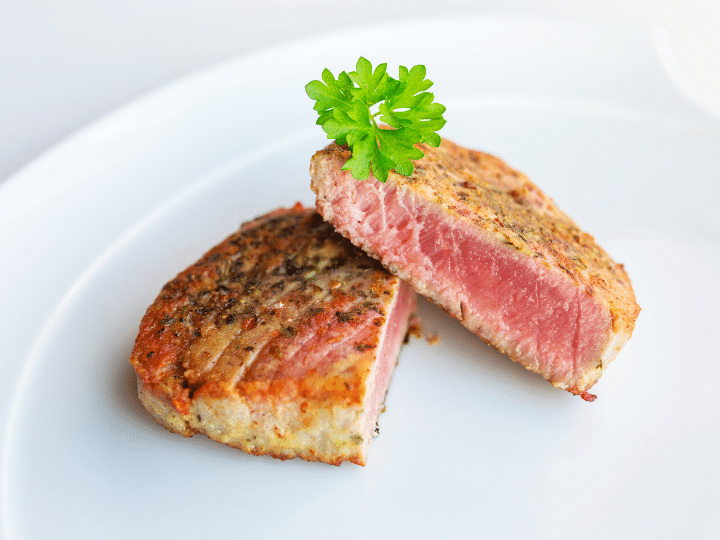
Nutritional Info for 100g, cooked:
- 184 Calories
- 6.3g Fat
- 0g Carbs
- 29.9g Protein
One of the most popular fish to eat, tuna is also one of the most protein-dense fish available, with almost 30 grams of protein per 100-gram serving. Fresh or frozen tuna, usually from larger varieties like yellowfin or bluefin, typically have more protein than canned tuna. However, larger tuna fish are also higher in mercury, so you may want to avoid consuming them too often.
2. Octopus

Nutritional Info for 100g, cooked:
- 164 Calories
- 2.1g Fat
- 4.4g Carbs
- 29.8g Protein
This coastal delicacy has an impressively high protein content, with over 29 grams of protein per 100 grams. It's a great source of complete protein and is also packed with nutritional benefits such as omega-3s and essential vitamins and minerals. While not always easy to find, octopus is a great high-protein treat for special occasions and is delicious simmered or grilled and added to salads, pasta, or as ceviche.
3. Salmon

Nutritional Info for 100g, cooked:
- 156 Calories
- 5.6g Fat
- 0g Carbs
- 26.5g Protein
Whether pan-fried, baked, or rolled into sushi, salmon is a tasty and healthy choice. In addition to having a high protein content, it's also rich in omega-3 fatty acids and a great source of astaxanthin, a powerful antioxidant. For the most health benefits, choose wild-caught options like sockeye salmon rather than farmed Atlantic salmon. While both are great, wild salmon is generally more nutritionally dense and less fatty. If you're looking for salmon recipes, you can try my blackened salmon, garlic butter salmon, or air fry salmon bites!
4. Snapper
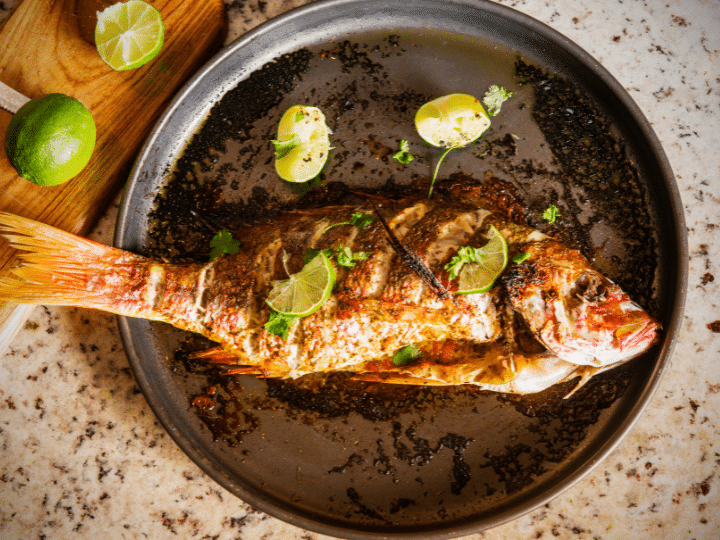
Nutritional Info for 100g, cooked:
- 128 Calories
- 1.7g Fat
- 0g Carbs
- 26.3g Protein
Snapper is one of the highest protein white fish options, fantastic for baking, pan-frying, or in fish tacos thanks to its firm texture and mildly sweet meat. It's rich in essential amino acids and is also one of the best seafood sources of selenium, a beneficial antioxidant that plays an important role in thyroid function, with a 100-gram serving supplying more than 100% of your daily recommended intake. I have a really delicious snapper recipe, so definitely give that a try!
5. Tilapia
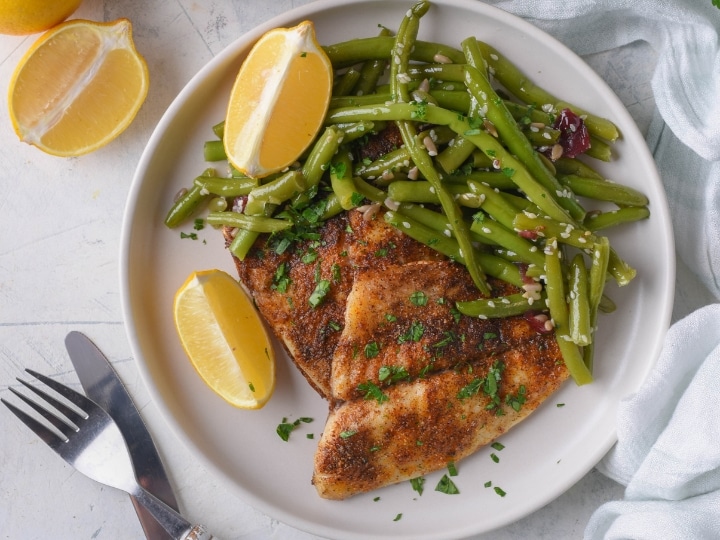
Nutritional Info for 100g, cooked:
- 128 Calories
- 2.7g Fat
- 0g Carbs
- 26.2g Protein
Tilapia is readily available in most grocery stores and is a highly versatile option that's great baked, fried, or grilled. Since this freshwater fish is farmed rather than wild-caught, it's also lower in mercury content compared to most other fish, making it a safer choice for regular consumption. I have two delicious tilapia recipes you can try - this air fryer tilapia or this grilled tilapia.
6. Sardines
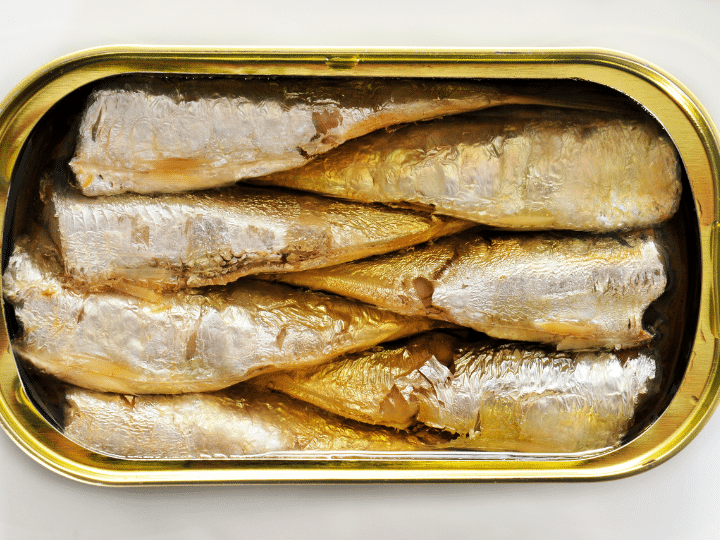
Nutritional Info for 100g, cooked:
- 208 Calories
- 11g Fat
- 0g Carbs
- 25g Protein
The tiny bones in sardines are hard to pick out but delicate enough to eat, and eating them whole offers more essential nutrients like vitamin D and calcium. This oily protein-rich fish is a convenient choice that can be bought fresh or canned in oil, water, or tomato sauce, with plenty of different seasoned options.
7. Pollock
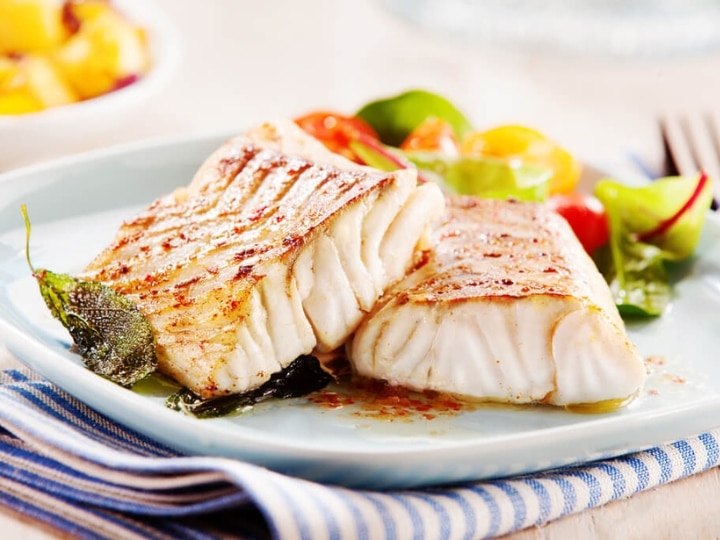
Nutritional Info for 100g, cooked:
- 118 Calories
- 1.3g Fat
- 0g Carbs
- 24.9g Protein
Pollock has a mild and delicate flavor, making it a popular choice for people who don't like a strong fishy taste. It's a great source of lean protein, has lower mercury levels than most fish, and is especially rich in vitamin B12 and selenium.
8. Grouper
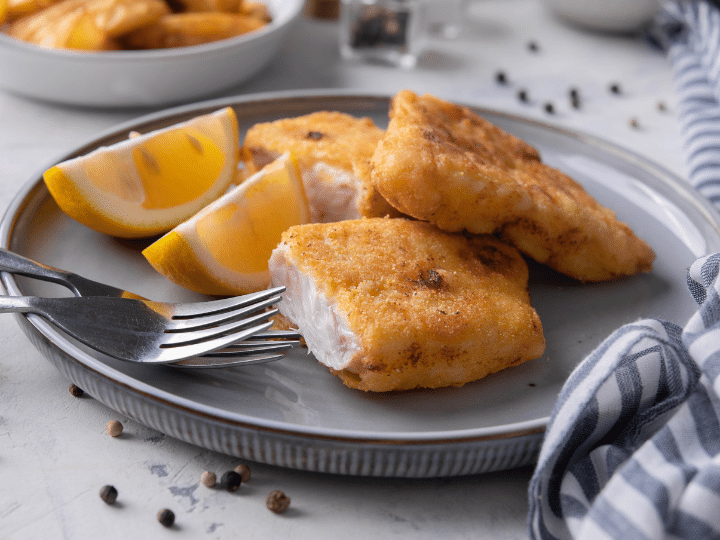
Nutritional Info for 100g, cooked:
- 118 Calories
- 1.3g Fat
- 0g Carbs
- 24.8g Protein
Another popular fish with a non-fishy taste, grouper is a favorite for fine dining thanks to its mild sweetness and firm, flaky texture that's reminiscent of lobster or crab. As groupers are large and eat other fish and crustaceans, they tend to have higher levels of mercury, so you'll want to limit your consumption to a few servings per month. Oh, and I have a pretty incredible fried grouper recipe on my other blog, so definitely give that a try.
9. Sea Bass
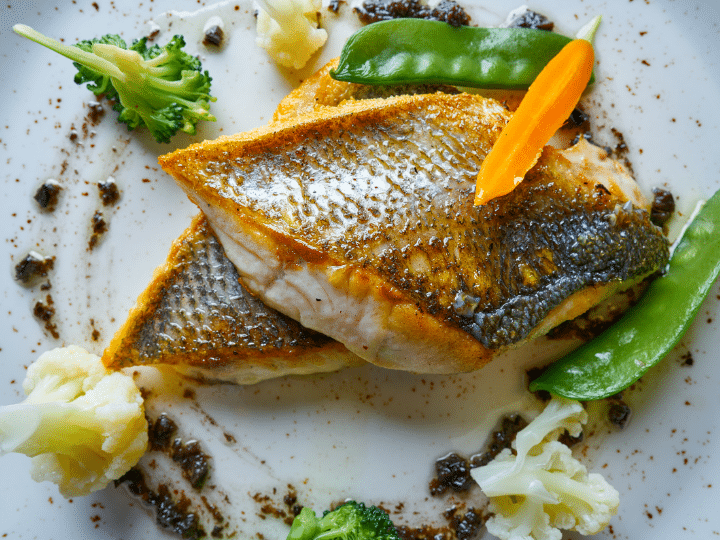
Nutritional Info for 100g, cooked:
- 124 Calories
- 2.6g Fat
- 0g Carbs
- 24g Protein
This versatile fish is a nutritious choice that's full of omega-3s and heart-healthy DHA. With its neutral flavor and moist, tender texture, there are endless ways to prepare protein-rich sea bass and incorporate it into your diet, from pan-seared to sous vide.
10. Shrimp

Nutritional Info for 100g, cooked:
- 99 Calories
- 0.3g Fat
- 0.2g Carbs
- 24g Protein
Quick-cooking and delicious, shrimp is a fantastic source of lean protein, with 24 grams of protein and less than 100 calories per 100-gram serving. My favorite recipe for shrimp is my sauteed garlic butter shrimp, and I highly recommend giving that a try.
11. Scallops
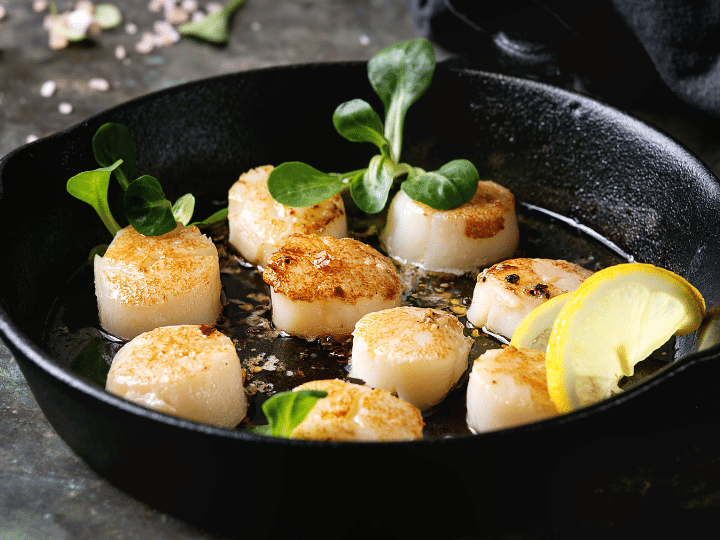
Nutritional Info for 100g, cooked:
- 137 Calories
- 0.98g Fat
- 0g Carbs
- 24g Protein
This delicate shellfish is another protein-packed option with 24 grams of protein in about 7 large or 16 small scallops. Scallops are particularly rich in phosphorus, a beneficial mineral that aids in bone health and tissue repair, making them a great healthy meal to complement regular physical activity.
12. Mackerel
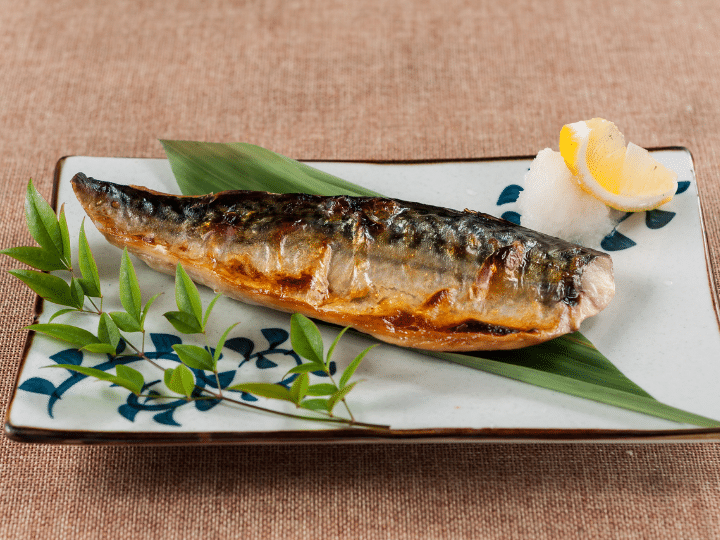
Nutritional Info for 100g, cooked:
- 262 Calories
- 17.8g Fat
- 0g Carbs
- 23.8g Protein
This oily fish is full of healthy fats, protein, and amino acids as well as being low in mercury, making it a great choice for regular consumption. It's delicious both fresh and canned, and canned options, in particular, come in plenty of different flavor variations and make a versatile and healthy pantry staple. Make sure to debone mackerel before eating; the bones generally aren't small and edible like those in sardines or anchovies.
13. Mahi-Mahi
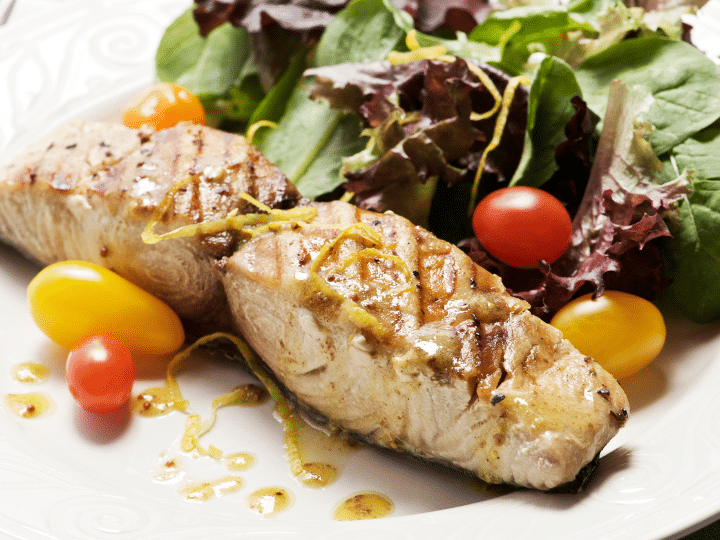
Nutritional Info for 100g, cooked:
- 109 Calories
- 0.9g Fat
- 0g Carbs
- 23.7g Protein
Mahi-mahi is popular for its mild flavor and meaty flesh and is great for making baked mahi mahi, grilled mahi mahi, or pan-fried mahi mahi. It's an excellent lean protein fish with low to moderate mercury levels. This fine dining favorite is high in B vitamins, especially vitamins B3, B6, and B12, which are essential in a host of bodily functions such as metabolism, blood health, and brain health.
14. Canned Tuna
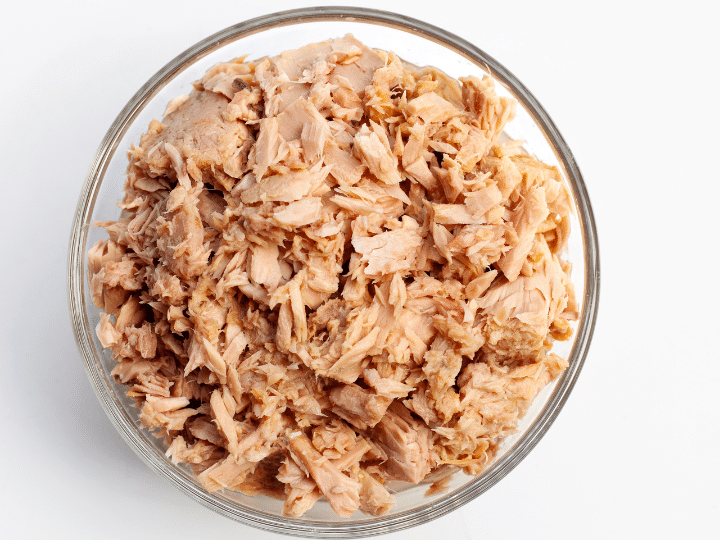
Nutritional Info for 100g, canned in water:
- 128 Calories
- 3g Fat
- 0g Carbs
- 23.6g Protein
Canned tuna is a quick and convenient way to get high-quality protein without having to cook. If you eat canned tuna regularly, opt for canned light tuna over albacore or white tuna, as light tuna is made of smaller tuna fish and has lower mercury levels. For fewer calories and saturated fat, you may also want to choose options canned in water rather than oil. For what it's worth, my favorite recipe to make with canned tuna is this low carb tuna salad.
15. Trout
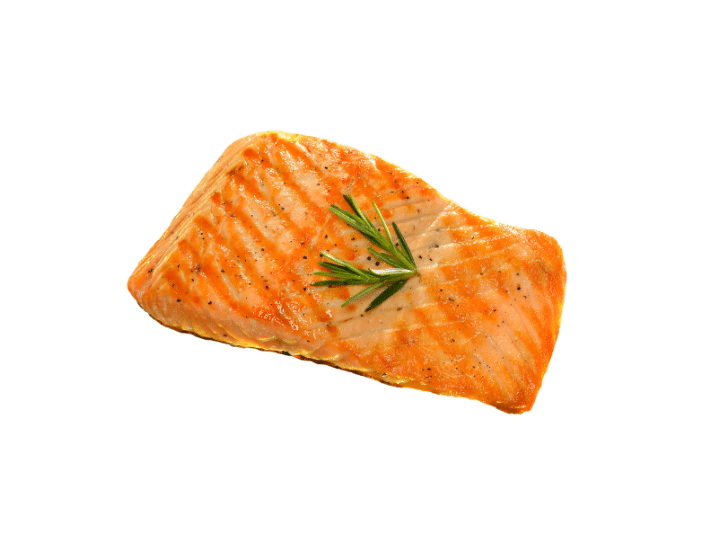
Nutritional Info for 100g, cooked:
- 150 Calories
- 5.8g Fat
- 0g Carbs
- 22.9g Protein
Whether it's freshwater rainbow trout or saltwater steelhead trout, trout is good eating and packed with protein. This mild and delicate fish with a firm and flaky texture is a versatile choice that can be grilled, baked, or pan-fried. Wild-caught trout is considered slightly healthier and more flavorful than farm-raised, and trout, in general, is naturally low in mercury, so it can be consumed more often.
16. Halibut
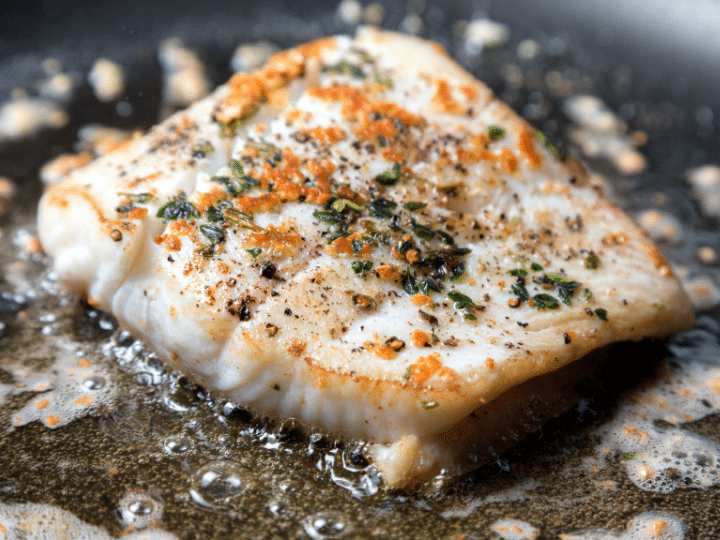
Nutritional Info for 100g, cooked:
- 111 Calories
- 1.6g Fat
- 0g Carbs
- 22.5g Protein
Almost 90% of the calories in halibut come from high-quality protein, with the rest being made up of heart-healthy fats. It also contains higher amounts of vitamin b3, vitamin b12, and vitamin D. My favorite way to prepare halibut is making my pan-seared halibut or grilled halibut with a savory spice rub, though there are endless delicious options for cooking this flavorful fish.
17. Anchovies
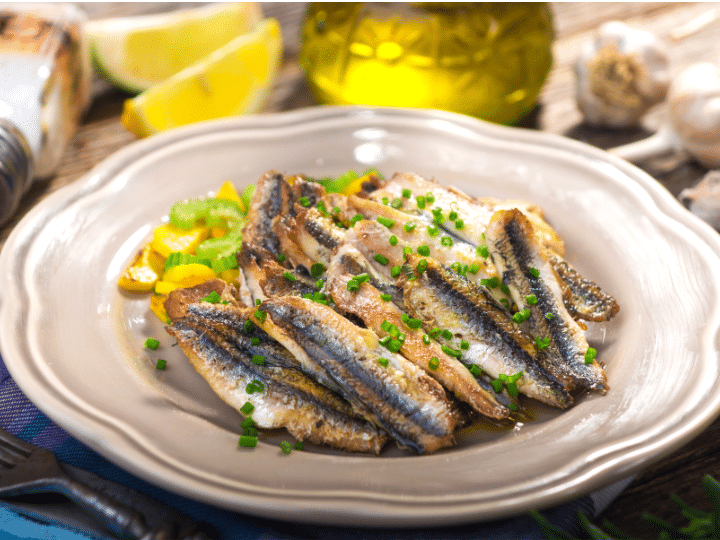
Nutritional Info for 100g, canned in water:
- 141 Calories
- 5.9g Fat
- 0g Carbs
- 22.4g Protein
You're more likely to find anchovies canned rather than fresh, which isn't a problem as canned anchovies are incredibly nutritious and naturally rich in protein. Anchovies are small enough to eat whole, bones and all, which means you get all the nutrients they can offer, such as high levels of fatty acids, vitamins, and minerals. I love putting anchovies on my dill pickle pizza.
18. Lobster

Nutritional Info for 100g, cooked:
- 98 Calories
- 0.59g Fat
- 0g Carbs
- 20.5g Protein
More than just fine dining fare, lobster is a nutritious shellfish with a lot to offer. In addition to being an excellent source of lean protein, it's also one of the richest sources of copper and selenium, with over 100% of the daily recommended value of these essential minerals in a 100-gram serving.
19. Cod
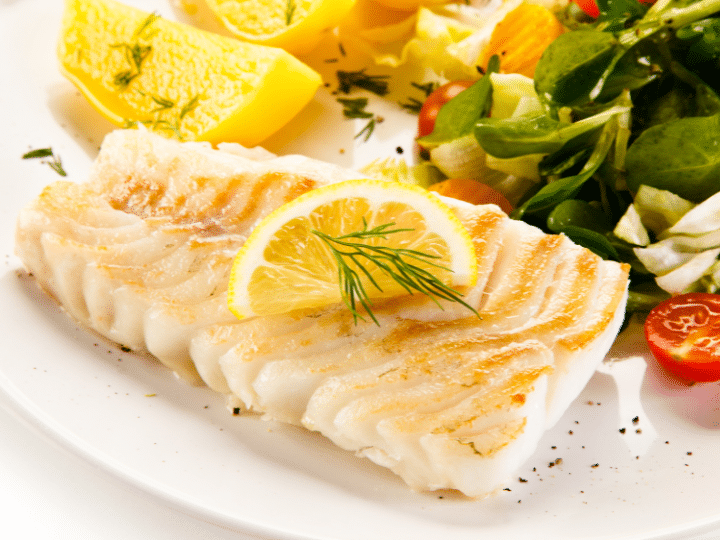
Nutritional Info for 100g, cooked:
- 84 Calories
- 0.25g Fat
- 0g Carbs
- 20.4g Protein
In addition to being a high protein fish, cod is also the lowest calorie option on this list, and almost 100% of its calories are pure protein. It's an excellent source of lean protein and also has a complete profile of essential amino acids, including conditionally essential amino acids that support the immune system during illness, stress, or recovery.
20. Haddock
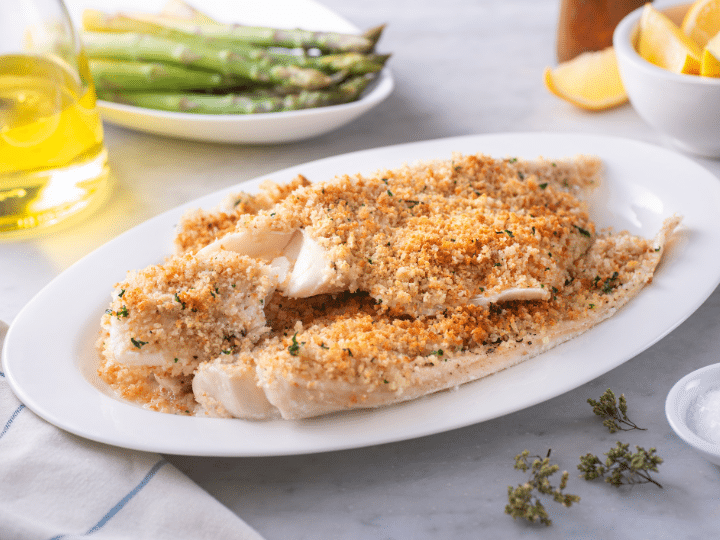
Nutritional Info for 100g, cooked:
- 90 Calories
- 0.55g Fat
- 0g Carbs
- 20g Protein
Another excellent lean protein fish, haddock is low in fat and high in protein, as well as rich in vitamins and minerals. It's especially high in vitamin B12, an important nutrient for blood, nervous system, and DNA functions. Haddock is also lower in mercury content than most fish, so it's safe to eat more often. I have a delicious baked haddock recipe with panko bread crumbs on my other blog that you can make.

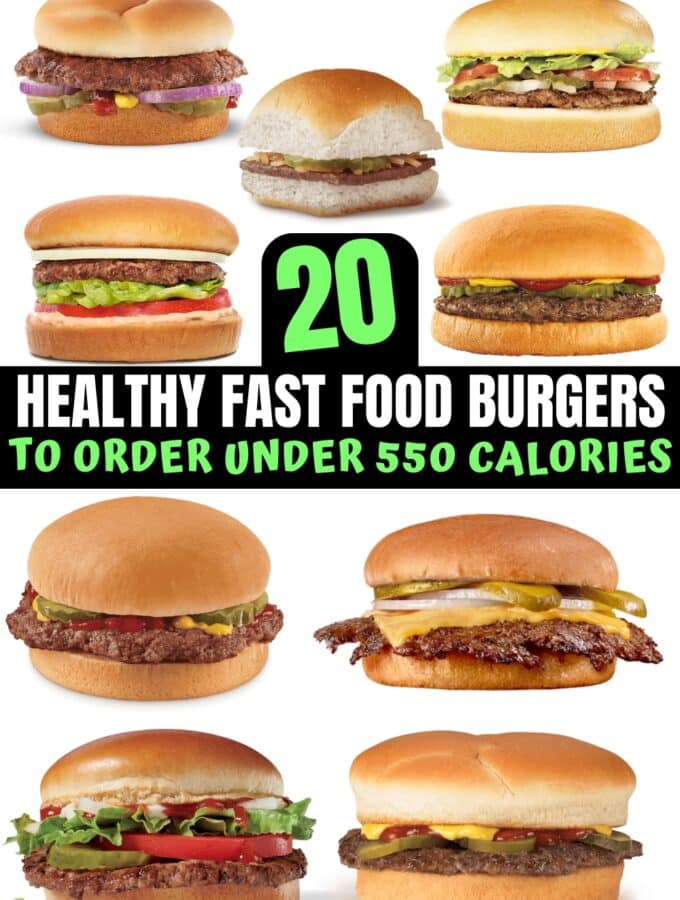
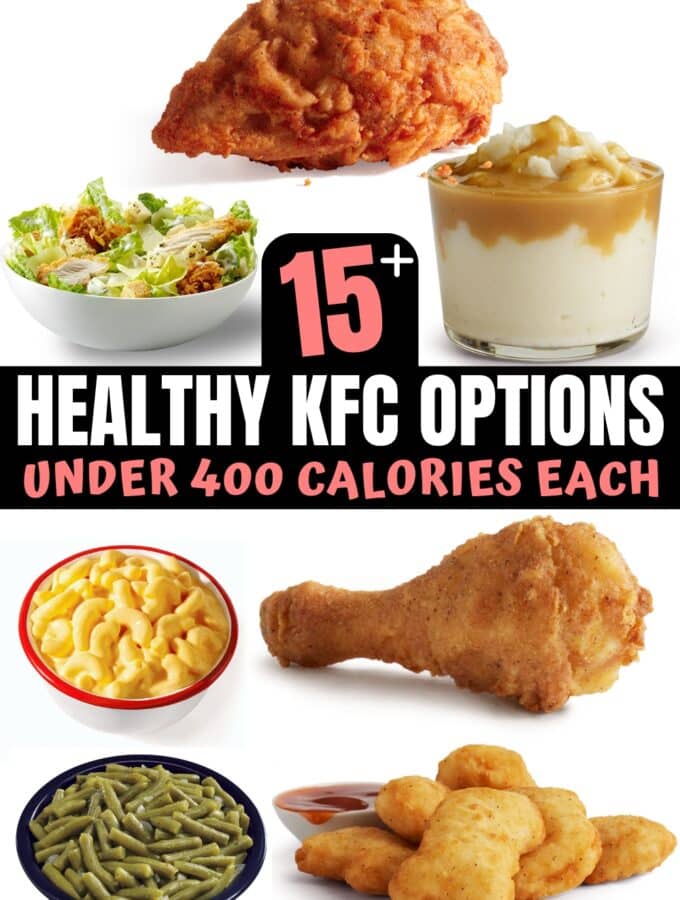
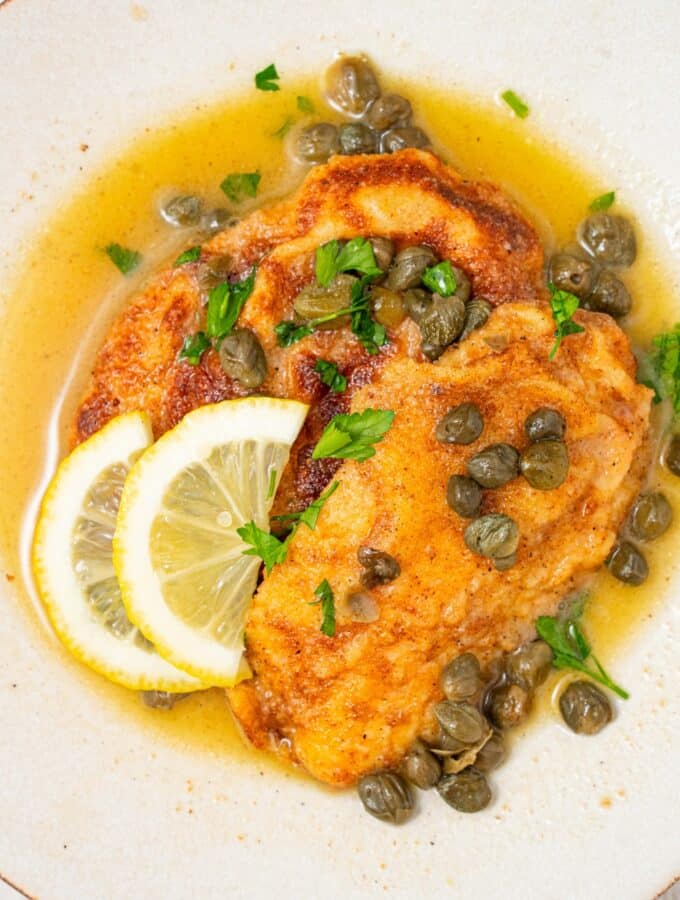
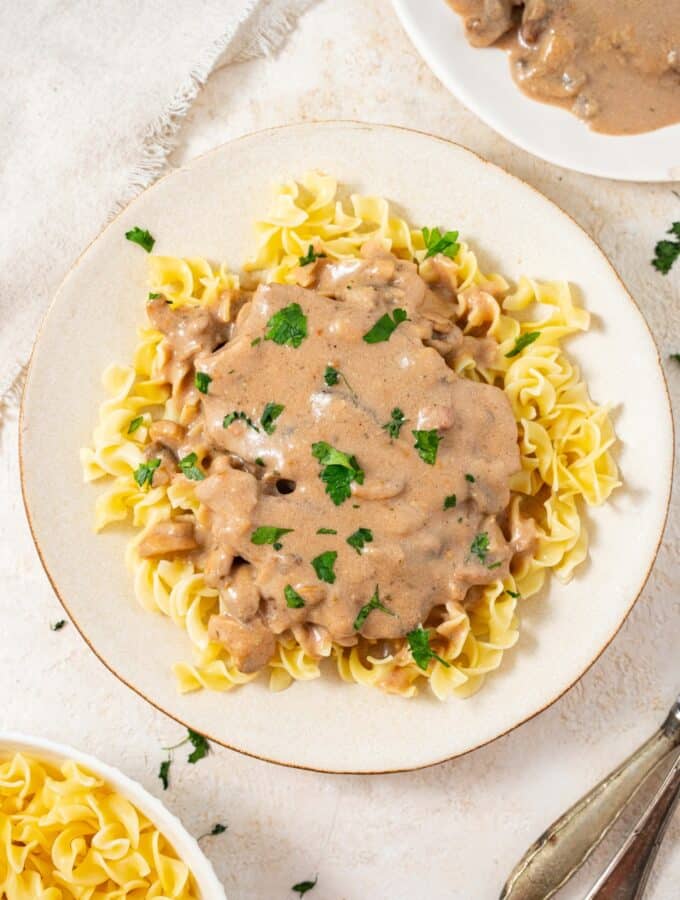
Leave a Reply